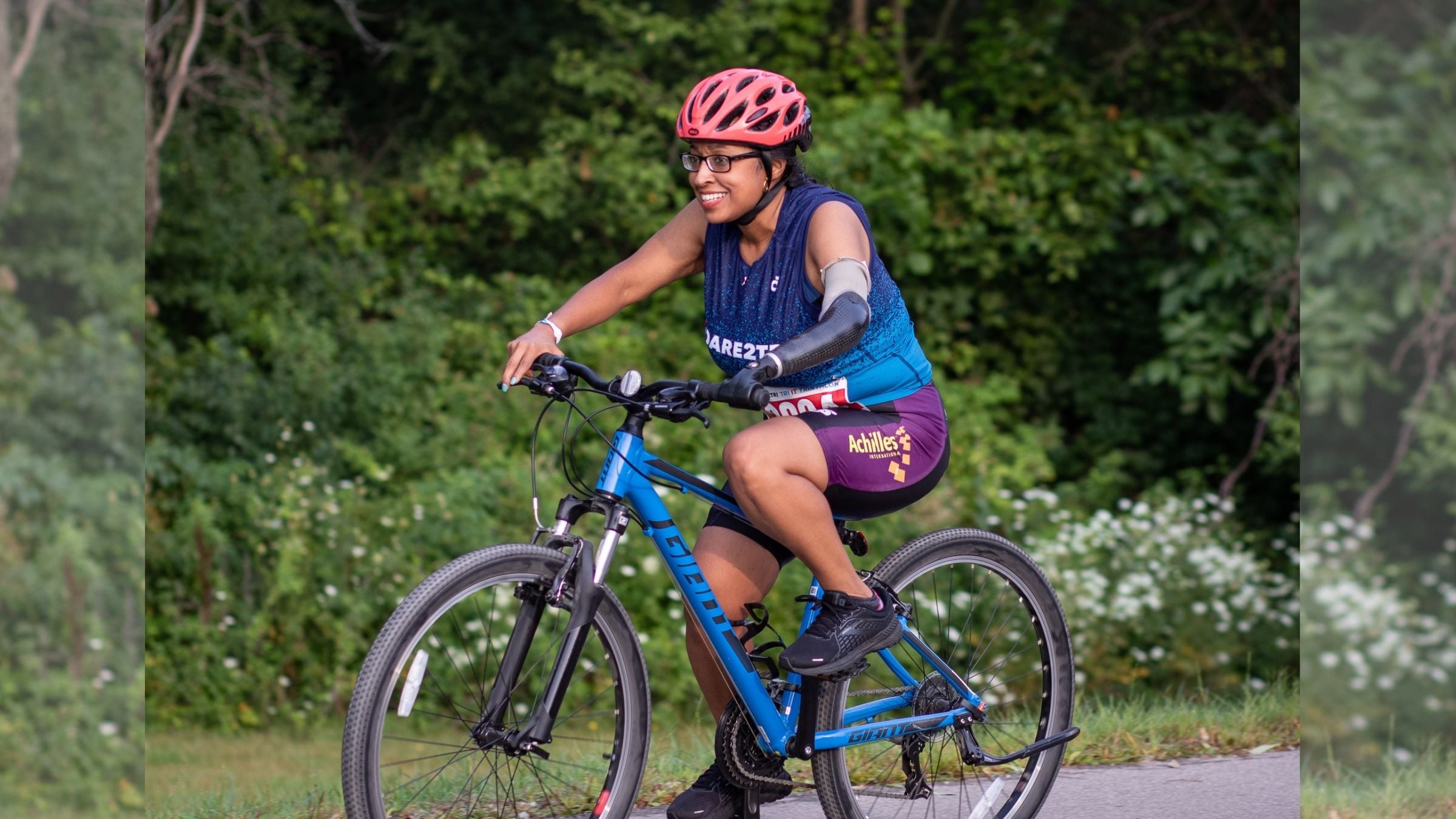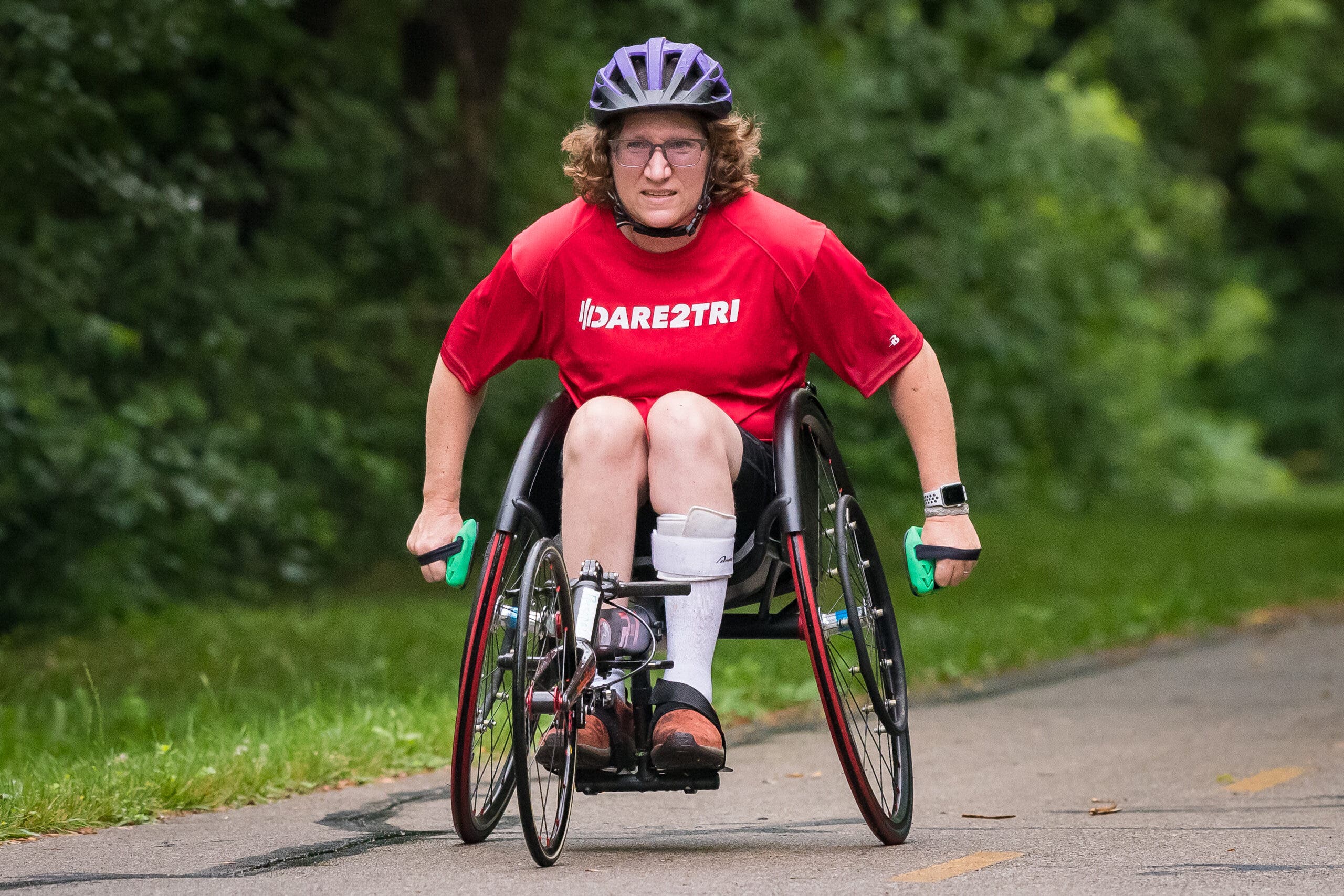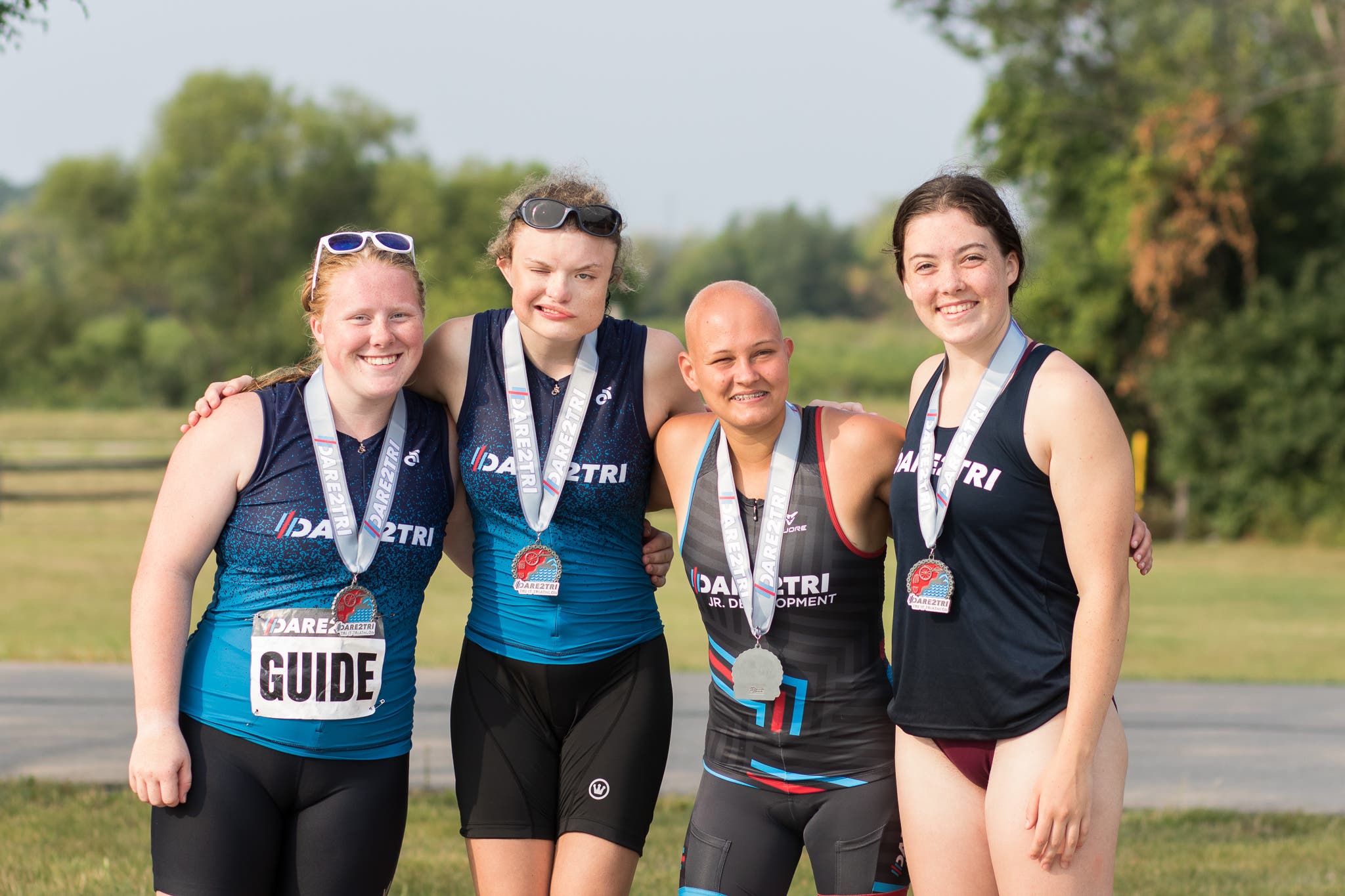Dare2Tri Makes Triathlon Possible for People With Disabilities

(Photo: Kyle Nowaczyk/Dare2Tri)
Melissa Stockwell knows exactly how triathlon can change lives. After becoming the first female soldier to lose a limb in the Iraq War, everything for the former U.S. Army officer was upended. During the rehabilitation process, where she adjusted to living with one leg, she discovered a new love for swimming, which gave her the confidence to take up cycling and running, too. Stockwell went on to compete in the 2008 Beijing Paralympics as a swimmer, won bronze in paratriathlon at the 2016 Games, took home three ITU Paratriathlon World Championship titles (2010, 2011, and 2012), and finished the Ironman Arizona triathlon.
But Stockwell didn’t want to just collect medals; she wanted to bring others onto the race course with her. She knew firsthand the barriers that kept many people with disabilities out of sport, from fear of injury to lack of access to adaptive equipment.
RELATED: How Red Tape Keeps Amputee Athletes Out of Sport
So in 2011, she partnered with Dan Tun and Keri Serota to address those barriers and Dare2Tri was born. By offering a variety of resources and assistance, Dare2Tri works to get individuals with physical disabilities and visual impairments involved in community-based recreation. Triathlon and its individual swim, bike, and run disciplines are the perfect adaptive sports for athletes with disabilities, said Serota:
“There are many adaptive sports that are team-based, meaning you need nine others in wheelchairs to play, like wheelchair basketball. Triathlon is a community-based sport where one person with a disability can go out in whatever community in which they live and participate alongside their family, friends, and peers. It is truly inclusive.”

Since 2011, Dare2Tri has recruited participants at rehabilitation centers, schools, disability support groups, the U.S. Department of Veteran Affairs, and prosthetic clinics. After identifying the needs unique to each individual and each disability, the organization equips the new athlete with the gear, training programs, and support required to finish their first triathlon.
“Our athletes who are visually impaired use a sighted guide for training and racing, and some of our other athletes who are newer to the sport also have an on course guide for support as well,” explains Serota. “We provide the athletes with adaptive equipment, like hand bikes, cat trikes, tandem bikes, racing wheelchairs. We also recruit and train the water exit team and handlers for the athlete support on race day.”
Though the finish line is the goal, the life-changing power of triathlon is often felt before race day. During training camps and multisport clinics, where athletes learn the basics of swim-bike-run along with how to use their new adaptive equipment (like running blades or tandem bikes), a growing sense of confidence buzzes throughout the participants.
“I never thought I’d run again after my amputation,” said Dare2Tri participant Steve Johnson. “At Learn2Tri Camp, I got the help and support to run for the first time since my crash, proving I can adapt and overcome anything I set out to do.”

To date, over 1,000 triathletes have participated in Dare2Tri events. The camp now offers a variety of programming, from kids’ tri camps to training sessions specifically for injured military. Those in Chicago, where the group is based, are also welcome to join free group rides and open-water swims, and a virtual adaptive strength training session takes place via videoconference every Tuesday. Longtime Dare2Tri members, including Stockwell, often mentor new athletes, and everyone celebrates victories on and off the race course.
“I’m most proud of the community we have built,” Serota said. “We are a family.”
RELATED: Pre-Transition? Flying Mounts? How Paratriathletes Navigate the Transition Area